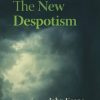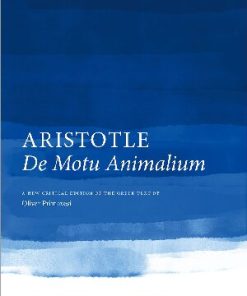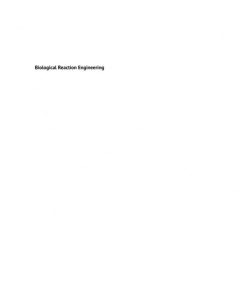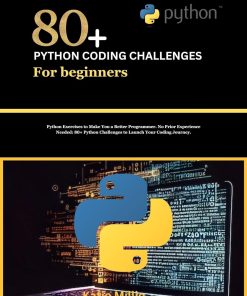(Ebook PDF) John Buridan’s Questions on Aristotle’s De Anima Iohannis Buridani Quaestiones in Aristotelis De Anima 1st edition by Gyula Klima, Peter Sobol, Peter Hartman, Jack Zupko 3030944336 9783030944339 full chapters
$50.00 Original price was: $50.00.$25.00Current price is: $25.00.
John Buridan’s Questions on Aristotle’s De Anima – Iohannis Buridani Quaestiones in Aristotelis De Anima 1st edition by Gyula Klima, Peter G. Sobol, Peter Hartman, Jack Zupko – Ebook PDF Instant Download/DeliveryISBN: 3030944336, 9783030944339
Full download John Buridan’s Questions on Aristotle’s De Anima – Iohannis Buridani Quaestiones in Aristotelis De Anima 1st edition after payment.
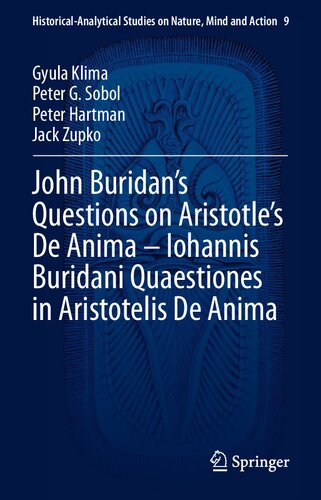
Product details:
ISBN-10 : 3030944336
ISBN-13 : 9783030944339
Author : Gyula Klima, Peter G. Sobol, Peter Hartman, Jack Zupko
This book provides the Latin text and its annotated English translation of the question-commentary of John Buridan (ca. 1300-1360) on Aristotle’s “On the Soul”. Buridan was the most influential Parisian nominalist philosopher of his time. His work speaks across centuries to our modern concerns in the philosophy of mind. This volume completes the project of a volume published earlier in the same series: “Questions on the Soul by John Buridan and Others”. An appealing book for scholars of Aristotle and those who are in the field of Medieval philosophy.
John Buridan’s Questions on Aristotle’s De Anima – Iohannis Buridani Quaestiones in Aristotelis De Anima 1st Table of contents:
- Utrum subiectum proprium in scientia libri De anima sit anima vel ille terminus anima vel corpus ani
- Is the proper subject of the science discussed in De Anima the soul, the term ‘soul’, the living bod
- Utrum omnis notitia sit de numero bonorum, id est utrum omnis notitia sit bona.
- Is all cognition counted among good things, that is to say, is all cognition good?
- Utrum omnis scientia sit de numero honorabilium.
- Is all knowledge honorable?
- Utrum scientia de anima sit de numero difficillimorum.
- Is the science of the soul one of the most difficultsciences?
- Utrum universale nihil est aut posterius est.
- Is a universal nothing or posterior?
- Utrum accidentia magnam partem conferant ad cognoscendum quod quid est.
- Do accidents contribute a great deal towards cognizing what something is?
- Circa secundum librum de anima quaeritur primo utrum omnis anima sit actus substantialis.
- Concerning the second book of De Anima we ask first: Is every soul a substantial act?
- Utrum omnis anima sit actus primus corporis organici.
- Is every soul the first act of an organic body?
- Utrum definitio animae sit bona qua dicitur anima est actus primus substantialis corporis physici or
- Is the definition of the soul which says that the soul is the first substantial act of an organic ph
- Utrum in eodem animali sit eadem anima vegetativa et sensitiva.
- Are the vegetative and sensitive souls the samein an animal?
- Utrum potentiae animae sint distinctae ab ipsa anima.
- Are the powers of the soul distinct from the soul itself?
- Utrum potentiae animae debeant distingui per actus autobiecta.
- Should the powers of the soul be distinguished by their acts or objects?
- Utrum tota anima sit in qualibet parte corporis animati.
- Is the whole soul in every part of the animate body?
- Utrum naturalissimum operum in viventibus sit generare sibi simile.
- Is it the most natural operation of living things to generate their like?
- Utrum sensus sit virtus passiva.
- Is sense a passive power?
- Utrum necesse est ad sentiendum esse sensum agentem.
- Is an agent sense necessary in order to sense?
- Utrum sensus possit decipi circa sensibile proprium sibi.
- Can sense be deceived about a sensible proper to it?
- Utrum sensibilia communia sint per se sensibilia.
- Are common sensibles per se sensible?
- Utrum numerus, magnitudo, figura, motus, et quies sint sensibilia communia et per se.
- Are number, magnitude, shape, motion and rest common, per se sensibles?
- Utrum color sit proprium obiectum visus.
- Is color the proper object of sight?
- Utrum ad videndum colores lumen requiratur propter colorem vel propter medium.
- Do we need illumination to see color because of the color or because of the medium?
- Utrum sit idem sonus quando ego loquor quem quilibet vestrum audit.
- When I speak, do each of you hear the same sound?
- Utrum odor multiplicatur realiter per medium vel spiritualiter seu intentionaliter.
- Is odor is propagated through a medium in its real being, or in its spiritual or intentional being?
- Utrum species qualitatum proprie et per se sensibilium habeant in medio vel in organo instantaneam g
- Do the species of proper and per se sensible qualities have instantaneous generation and propagation
- Utrum tactus sit unus sensus vel plures.
- Is touch one sense or several?
- Utrum sint tantum quinque sensus exteriores.
- Are there only five external senses?
- Utrum sensibile positum supra sensum faciat sensationem, id est, sentiatur.
- Does a sensible object placed on a sense produce sensation? That is, is it sensed?
- Utrum praeter sensus exteriores oportet ponere unum sensum communem.
- Is it necessary to postulate a single common sense?
- Utrum oporteat praeter sensum communem ponere alios sensus interiores.
- Is it necessary to posit other internal senses in addition to the common sense?
- Utrum organum sensus communis sit in corde vel in cerebro seu in capite; nullus enim alibi ponitur i
- Is the organ of common sense in the heart or in the brain or in the head (for it is not taken to be
- Utrum in organis exterioribus sensuum subiective fiat actualis sensatio vel solum receptio specierum
- Does actual sensation take place in the external senses as in a subject, or only the reception of se
- Circa tertium librum De anima quaeritur primo utrum intellectus humanus sit virtus passiva ab intell
- Concerning Book III of De Anima we ask first: Is the human intellect a passive power as regards an i
- Utrum oporteat intellectum esse denudatum ab eo quod ipse intelligit.
- Must the intellect be devoid of what it understands?
- Utrum intellectus humanus sit forma substantialis corporis humani.
- Is the human intellect the substantial form of the humanbody?
- Utrum intellectus humanus sit forma inhaerens corpori humano.
- Is the human intellect a form inhering in the humanbody?
- Utrum sit unicus intellectus quo omnes homines intelligentes intelligant.
- Is there a unique intellect by which all humans understand when they are thinking?
- Utrum intellectus humanus sit perpetuus.
- Is the human intellect everlasting?
- Utrum intellectus possibilis sit pura potentia sic quod non sit aliquis actus, sicut nec materia pri
- Is the possible intellect pure potency in the sense that it is not any kind of actuality, just like
- Utrum intellectus prius intelligat universale quam singulare, vel e converso.
- Does the intellect understand the universal before the singular, or vice versa?
- Utrum intellectus humanus possit se intelligere.
- Can the human intellect understand itself?
- Utrum necesse sit ad hoc quod homo intelligat concurrere active intellectum agentem, praeter intelle
- Is the active contribution of an agent intellect, apart from the possible intellect, necessary for a
- Utrum actus vel etiam habitus intellectualis sit idem quod anima intellectiva vel sit res sibi addit
- Is the intellectual act or even its habit the same as the intellective soul, or a thing added to it?
- Utrum omnis intellectio simplex sit vera.
- Is every simple act of thinking true?
- Utrum non ens possit intelligi.
- Can a non-being be understood?
- Utrum punctum monstretur vel intellegatur ut privatio.
- Is a point represented or understood as a privation?
- Utrum intellectus sit reservativus specierum intelligibilium, cessante actuali intellectione.
- Does the intellect preserve intelligible species once the actual act of thinking has ceased?
- Utrum intellectus humanus possit intelligere plura simul.
- Can the human intellect understand more than one thing at once?
- Utrum in homine sit anima intellectiva alia ab animasensitiva.
- Does the intellective soul in a human being differ from the sensitive soul?
- Utrum in homine est appetitus appetitui contrarius.
- Is one appetite contrary to another in a human being?
- Utrum natura faciat aliquid frustra vel etiam deficiat aliquando in necessariis.
- Does nature do anything in vain, or is it even sometimes deficient in what is necessary?
- Utrum potentia motiva secundum locum sit vegetativa vel sensitiva vel intellectiva vel appetitiva ve
- Is the locomotive power the vegetative, sensitive, intellective, appetitive, or some other power of
- Index of Names
- Index of References in the Footnotes to the Translation
- Index of Terms in the Footnotes to the Translation
People also search for John Buridan’s Questions on Aristotle’s De Anima – Iohannis Buridani Quaestiones in Aristotelis De Anima 1st:
questions about aristotle and dante
john bearden donkey
aristotle questions and answers
aristotle and dante questions
aristotle on animals
Tags:
John Buridan,Questions,Aristotle,De Anima,Iohannis Buridani,Quaestiones,Gyula Klima,Peter Sobol,Peter Hartman,Jack Zupko
You may also like…
Uncategorized
Uncategorized
(EBOOK PDF)El Puño de la Fe 1st edition by John Bentley 4824171121 9784824171122 full chapters
Uncategorized


